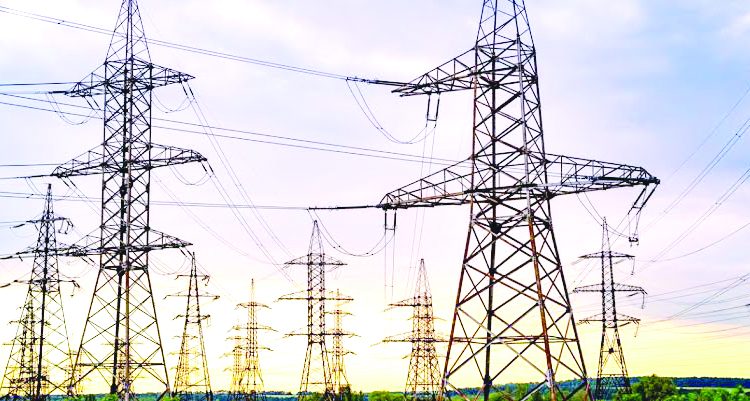European countries are showing growing interest in Egypt’s significant potential in renewable energy. Hence, Egypt can play a crucial role in supplying European markets with renewable electricity, contributing to environmental improvement, creating new job opportunities, and boosting economic growth and trade.
Egypt and Italy plan to develop a project for generating electricity with the companies K&K and CESI.
The project will connect Egypt and Italy using high voltage direct current (HVDC) technology, a significant endeavour managed by CESI.
“As a global consulting company specialising in feasibility studies for international connections, our approach involves a comprehensive analysis of the technical, environmental, and economic impacts,” CESI’s CEO, Domenico Villanisaid in recent press remarks.
HVDC technology is viewed as a strategic energy link connecting the European Union, the Middle East, North Africa, and Africa. In this context, Egypt can become a strategic centre, thanks to its planned or existing connections with Sudan, Jordan, Saudi Arabia, and the rest of the Gulf region.
The project envisions establishing a 3-gigawatt green corridor for exporting renewable energy from Egypt to Europe, with an underwater HVDC cable covering approximately 2800 kilometres.
The government has also approved the signing of a memorandum of understanding between the Egyptian Electricity Transmission Company and Belgian builder Jan De Nul to begin studies on a project to export electricity from renewable energy from Egypt to Europe via a Mediterranean Sea line.
Prime Minister Moustafa Madbouli termed the project as “strategic” for Egypt and Europe, noting that Egypt plans to extend marine electricity transmission lines to several European countries.
Madbouli noted that many international firms are interested in investing in marine cable projects, adding that Egypt can export electricity to Europe but this is hinged on the implementation of the electrical interconnection network with the continent.
Meanwhile, the Cabinet announced that the first phase of the Belgian company Demi’s project to produce green hydrogen in the port of Jargoub in Egypt will cost about $3 billion. The project will be implemented in three phases.
The Egyptian state seeks to establish power interconnection with Europe to export electricity to European countries, Minister of Electricity and Renewable Energy Mohamed Shaker has said.
During a recent meeting with Gordon Dickie, chairman of IM Power, Shaker said Egypt, which aspires to become “a regional energy hub,” is ready to co-operate with European partners to build a power linkage with Europe.
The minister welcomed co-operation with the British company in renewable energy projects, especially wind and solar energy, as well as green hydrogen, and the localisation of related industries in Egypt.
He added that Egypt aims to increase the renewable energy’s contribution to the country’s total power generation to at least 42 per cent by 2030.
Egypt already has electricity interconnection lines with Jordan, Sudan, and Libya and is studying similar projects with Saudi Arabia, Greece, Cyprus, and Italy.
Over the past year, the country signed many memoranda of understandings (MoUs) with various international entities to attract foreign investment in green hydrogen and to become a hub for hydrogen production.
Egypt is working on increasing the supply of electricity generated from renewable sources to 42 per cent by 2035, with winds providing 14 per cent, hydropower 1.98 per cent, photovoltaic (PV) 21.3 per cent, concentrating solar power (CSP) 5.52 per cent, and conventional energy sources 57.33 per cent by 2035.
Egypt also signed two agreements with Cyprus and Greece to conduct studies for a three-way 2,000 MW electrical interconnection.
“The electrical interconnection project between Egypt and Cyprus, and from there to Greece and then to the rest of Europe will help Egypt become an important energy partner for Europe,” Ahmed Samir, professor of road and construction engineering at Benha University told The Egyptian Gazette.
“Egypt already has power links with Jordan, Sudan and Libya and is looking forward to increasing power links with other Arab, African and European countries, making it an energy centre in the Middle East, with Jordan and Saudi Arabia in the east, west with Libya, south with Sudan, and north with Cyprus and Greece,” Samir said.
“This is a real turning point for Egypt, which relied on energy imports for years in the past,” he said, adding that such projects will boost national income and promote energy security.
Current international conditions prompted Egypt to intensify its efforts to become a regional energy hub, with a focus on supplying natural gas and electrical power to neighbouring countries and boosting local investments in green hydrogen production, Samir told this newspaper.
Egypt’s recent achievements in producing considerable surpluses in electrical and natural gas production have allowed the country to play a major role in meeting energy needs at a regional level, according to Ahmed Ibrahim, professor of energy and mechanical power engineering at Cairo University.
Egypt has achieved an electricity surplus of more than 30 per cent, thanks to the implementation of several mega projects that ended decades of chronic power outages.
Egypt will be one of the fastest growing non-hydropower renewables market in the region, with a capacity expanding by more than 8.5 GW at an average rate of 22.1 per cent year-on-year between 2019 and 2028.
This rate boils down to a number of key factors, including the availability of solar and wind potentials, and the decreasing costs of their production.
With the growth in capacity and a robust export market, Egypt is set to be a regional leading hub in electricity.
The new capacity in Egypt will account for almost 65 per cent of the region’s total net growth in renewables, thanks to high-volume private sector investments.
Egypt has constructed a number of electric power production stations and solar energy compounds across the country.
Benban solar park is an example of this. It is a power complex of 41 solar power plants being built in Benban, about 650km south of Cairo and 40km northwest of Aswan.






Discussion about this post